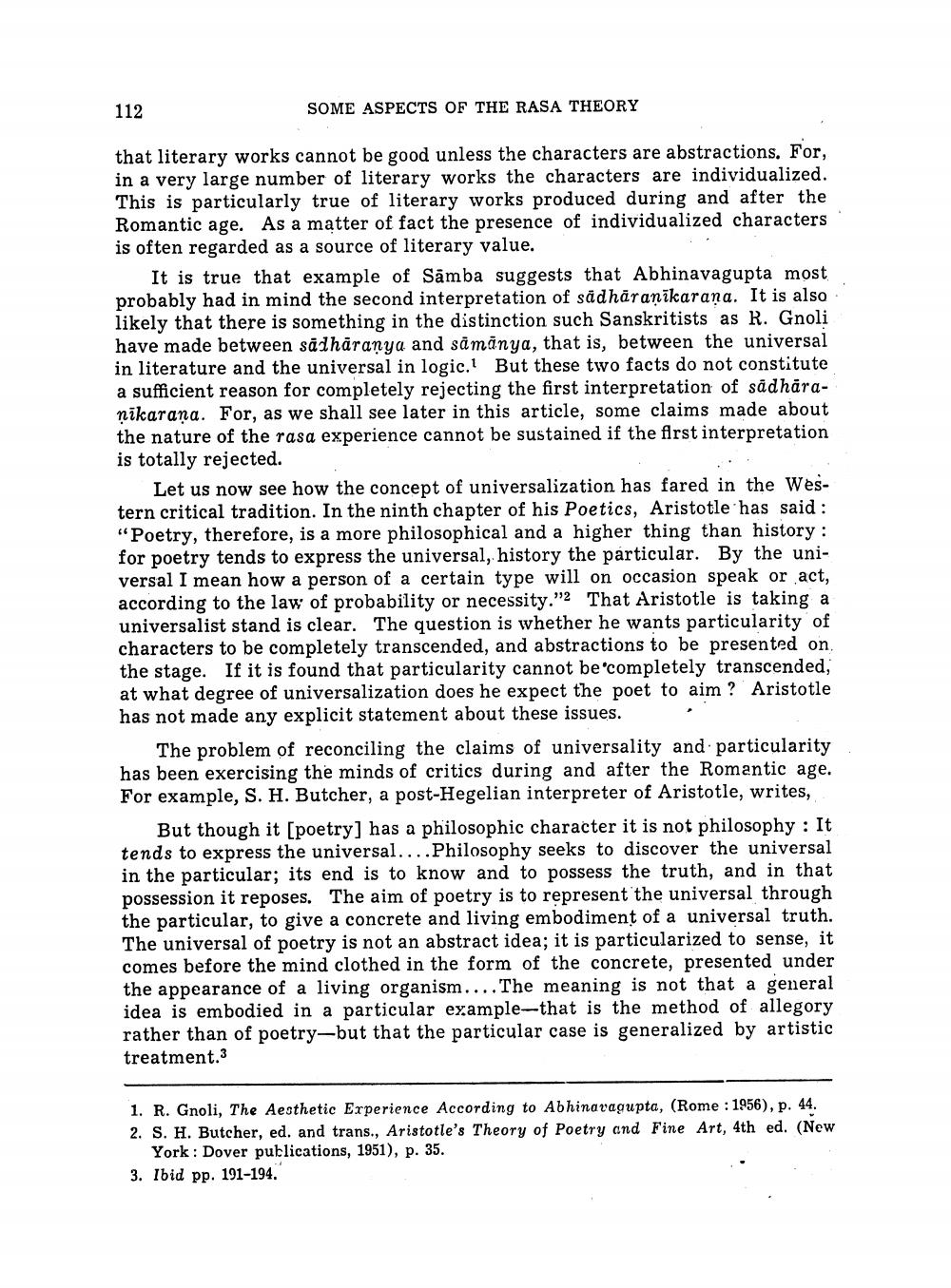________________
112
SOME ASPECTS OF THE RASA THEORY
that literary works cannot be good unless the characters are abstractions. For, in a very large number of literary works the characters are individualized. This is particularly true of literary works produced during and after the Romantic age. As a matter of fact the presence of individualized characters is often regarded as a source of literary value.
It is true that example of Samba suggests that Abhinavagupta most probably had in mind the second interpretation of sådhāraṇīkarana. It is also likely that there is something in the distinction such Sanskritists as R. Gnoli have made between sadharanya and sámánya, that is, between the universal in literature and the universal in logic. But these two facts do not constitute a sufficient reason for completely rejecting the first interpretation of sådhāranikarana. For, as we shall see later in this article, some claims made about the nature of the rasa experience cannot be sustained if the first interpretation is totally rejected.
Let us now see how the concept of universalization has fared in the Western critical tradition. In the ninth chapter of his Poetics, Aristotle has said : “Poetry, therefore, is a more philosophical and a higher thing than history: for poetry tends to express the universal, history the particular. By the universal I mean how a person of a certain type will on occasion speak or act, according to the law of probability or necessity." That Aristotle is taking a universalist stand is clear. The question is whether he wants particularity of characters to be completely transcended, and abstractions to be presented on the stage. If it is found that particularity cannot be completely transcended, at what degree of universalization does he expect the poet to aim ? Aristotle has not made any explicit statement about these issues.
The problem of reconciling the claims of universality and particularity has been exercising the minds of critics during and after the Romantic age. For example, S. H. Butcher, a post-Hegelian interpreter of Aristotle, writes,
But though it (poetry] has a philosophic character it is not philosophy : It tends to express the universal....Philosophy seeks to discover the universal in the particular; its end is to know and to possess the truth, and in that possession it reposes. The aim of poetry is to represent the universal through the particular, to give a concrete and living embodiment of a universal truth. The universal of poetry is not an abstract idea; it is particularized to sense, it comes before the mind clothed in the form of the concrete, presented under the appearance of a living organism....The meaning is not that a general idea is embodied in a particular example--that is the method of allegory rather than of poetry—but that the particular case is generalized by artistic treatment.3
1. R. Gnoli, The Aesthetic Experience According to Abhinavagupta, (Rome : 1956), p. 44. 2. S. H. Butcher, ed. and trans., Aristotle's Theory of Poetry and Fine Art, 4th ed. (New
York: Dover publications, 1951), p. 35. 3. Ibid pp. 191-194.




